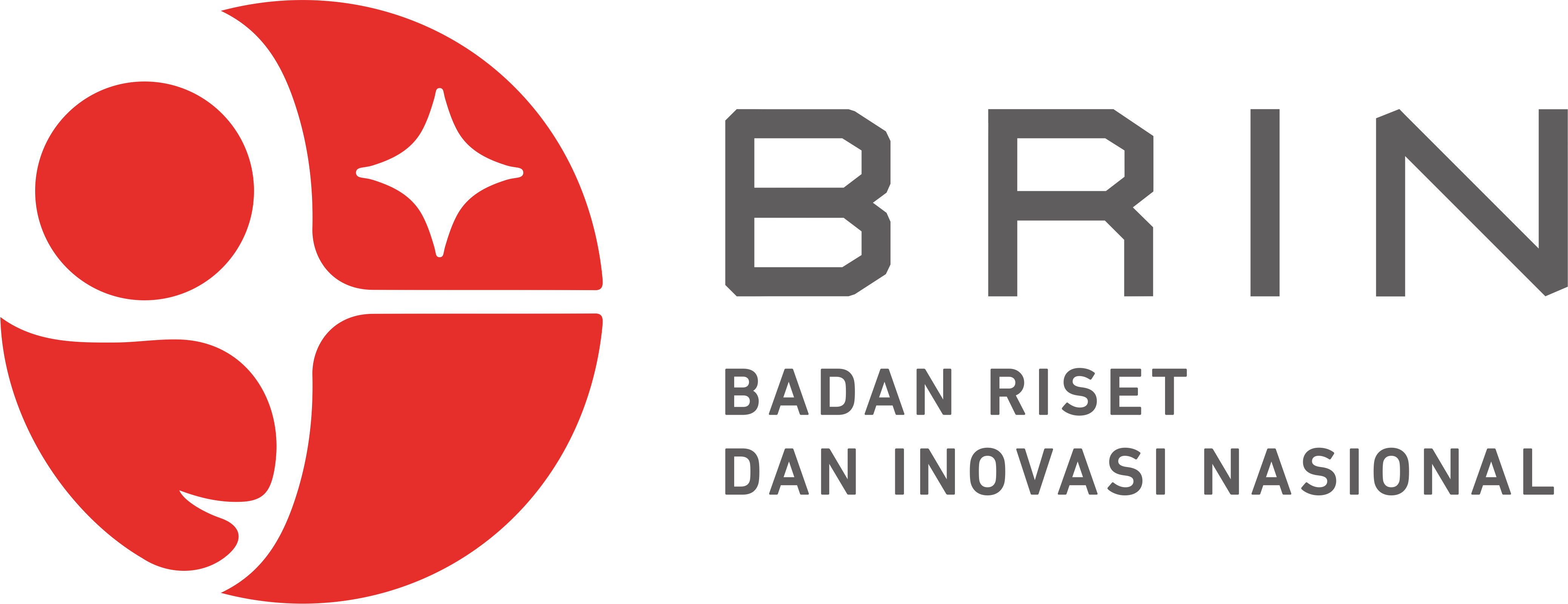INTEGRASI MATA PELAJARAN CODING DAN KECERDASAN BUATAN (AI) DALAM KURIKULUM SEKOLAH DASAR SEBAGAI UPAYA MENINGKATKAN KETERAMPILAN ABAD KE-21
Keywords:
coding integration, artificial intelligence, primary school curriculum, 21st-century skills, technology education, skill development, digital literacyAbstract
The development of digital technology demands a paradigm shift in education, particularly in preparing young people to master 21st-century skills such as critical thinking, creativity, collaboration, and digital literacy. This study aims to analyse the implementation of coding and artificial intelligence (AI) integration in primary school curricula as a strategy to improve these skills. The research method used is a literature review. The results indicate that the integration of coding and AI can strengthen both technical and soft skills among students, despite challenges such as infrastructure limitations and teacher readiness. This study recommends the development of age-appropriate learning materials, intensive teacher training, and equitable access to technology to ensure effective and sustainable integration. Thus, the integration of coding and AI in primary schools is a crucial investment in cultivating adaptive and competent generations in the digital age.
Downloads
References
Arslan, O. (2023). Artificial Intelligence Integration into School Education. Contemporary Education Dialogue. https://doi.org/10.1177/09763996231158229
Aslan, A., & Nur, R. F. (2025). IMPLEMENTING THE PRINCIPLES OF SOCIAL JUSTICE AND EQUALITY IN EDUCATION: A LITERATURE REVIEW OF EFFORTS TO ELIMINATE DISCRIMINATION AND BUILD MUTUAL RESPECT IN SCHOOLS. International Journal of Teaching and Learning, 2(11), Article 11.
Aslan, A., & Rasmita, R. (2025). EXPLORING CHALLENGES AND STRATEGIES IN TEACHING ENGLISH AS A SECOND LANGUAGE TO YOUNG LEARNERS. International Journal of Teaching and Learning, 2(11), Article 11.
Aslan, A., & Sidabutar, H. (2025). APPLICATION OF PIAGET’S THEORY IN EARLY CHILDHOOD EDUCATION CURRICULUM DEVELOPMENT. International Journal of Teaching and Learning, 3(1), Article 1.
Awaluddin, A., & Hadi, M. S. (2025). Integrasi Pembelajaran Coding dan Kecerdasan Buatan di Sekolah Dasar: Tantangan dan Peluang. Pendas: Jurnal Ilmiah Pendidikan Dasar, 10(1), 1081–1094. https://doi.org/10.23969/jp.v10i01.21753
Boulhrir, T. (2025). Unpacking artificial intelligence in elementary education. Discover Education. https://doi.org/10.1016/j.dshe.2025.100827
Caroline, C., & Aslan, A. (2025). Meningkatkan Aksesibilitas Pendidikan melalui Teknologi: Tantangan dan Solusi di Negara Berkembang. Jurnal Ilmiah Edukatif, 11(1), Article 1. https://doi.org/10.37567/jie.v11i1.3696
Choi, H. (2024). Development and Application of Elementary School AI Education Program Based on IB PYP. Journal of Curriculum and Teaching. https://doi.org/10.5430/jct.v13n2p83
Eliyah, E., & Aslan, A. (2025). STAKE’S EVALUATION MODEL: METODE PENELITIAN. Prosiding Seminar Nasional Indonesia, 3(2), Article 2.
Ferrari, R. (2020). Writing narrative style literature reviews. Medical Writing, 24(4), 230–235. https://doi.org/10.1179/2047480615Z.000000000329
Firmansyah, F., & Aslan, A. (2025a). EFFECTIVENESS OF SPECIAL EDUCATION PROGRAMMES IN PRIMARY SCHOOLS: AN ANALYSIS OF THE LITERATURE. INJOSEDU: INTERNATIONAL JOURNAL OF SOCIAL AND EDUCATION, 2(2), Article 2.
Firmansyah, F., & Aslan, A. (2025b). THE RELEVANCE OF STEAM EDUCATION IN PREPARING 21ST CENTURY STUDENTS. International Journal of Teaching and Learning, 3(3), Article 3.
Hapinas, H., Aslan, A., & Hasanah, M. (2025). PENERAPAN MEDIA AUDIO VISUAL SEBAGAI UPAYA MENINGKATKAN MINAT BELAJAR SISWA PADA MATA PELAJARAN AKIDAH AKHLAK DI KELAS VII MTSS YASTI PIMPINAN TAHUN PELAJARAN 2023-2024. Jurnal Komunikasi, 3(1), Article 1.
Hassan, Z., & Baturay, M. H. (2024). Fostering 21st Century Skills: AI Integration for Innovative Education Enhancement. Socrates: Journal of Interdisciplinary Social Studies. https://doi.org/10.5281/zenodo.10499018
Judijanto, L., & Aslan, A. (2025). ADDRESSING DISPARITIES IN MULTISECTORAL EDUCATION: LEARNING FROM AN INTERNATIONAL LITERATURE REVIEW. Indonesian Journal of Education (INJOE), 5(1), Article 1.
Kementerian Pendidikan, K., Riset, dan Teknologi. (2025). Naskah Akademik Pembelajaran Koding dan Kecerdasan Artifisial (KA) dalam Kurikulum. Kemendikbudristek.
Kim, J. (2024). Programming and 21st Century Skill Development in K‐12 Schools: A Meta‐analysis. Journal of Computer Assisted Learning. https://doi.org/10.1111/jcal.12904
Kurniawan, D. (2023). Integration of Coding and Artificial Intelligence (AI) Subjects in Primary School. Jurnal Pendidikan Profesi. https://doi.org/10.15294/jpp.v42i2.30457
Lee, S. (2024). Integration of Artificial Intelligence in K-12: Analysis of a Three-Year Pilot Study. Educational Sciences. https://doi.org/10.3390/educsci13030249
Lin, Y. (2023). Global initiatives and challenges in integrating artificial intelligence into K-12 education. Frontiers in Education. https://doi.org/10.1002/fer3.59
Liu, X. (2024). A critical review of teaching and learning artificial intelligence. Discover Education. https://doi.org/10.1016/j.dshe.2024.100122X
Novak, L. (2024). Gamifying Learning with AI: A Pathway to 21st-Century Skills. Early Education and Development. https://doi.org/10.1080/02568543.2024.2421974
Oner, D. (2024). Students as AI Literate Designers: A Pedagogical Framework. Journal of Educational Computing Research. https://doi.org/10.1080/15391523.2025.2449942
Pahrudin, P. (2024). Integration of Artificial Intelligence in 21st Century Curriculum. International Journal of Education. https://doi.org/10.33369/ije.2024.10.2.100-110
Pongpalilu, F., & Aslan, A. (2025). THE ROLE OF TEACHERS AS AGENTS OF CHANGE IN SHAPING STUDENTS’ CREATIVITY, CHARACTER, AND SOCIAL SENSITIVITY: A LITERATURE REVIEW. International Journal of Teaching and Learning, 2(11), Article 11.
Pratikno, A. S. (2017). Implementasi Artificial Intelligence Dalam Memetakan Karakteristik, Kompetensi, dan Perkembangan Psikologi Siswa Sekolah Dasar.
Purike, E., & Aslan, A. (2025). A COMPARISON OF THE EFFECTIVENESS OF DIGITAL AND TRADITIONAL LEARNING IN DEVELOPING COUNTRIES. Indonesian Journal of Education (INJOE), 5(1), Article 1.
Renyaan, A. S., Mardiah, A., & Aslan, A. (2025). THE INFLUENCE OF GOOGLE SCHOLAR INDEXATION ON CAREER DEVELOPMENT AND LECTURER PERFORMANCE IN HIGHER EDUCATION. International Journal of Teaching and Learning, 2(11), 1226–1234.
Ridwan, R., Aslan, A., & Rona, R. (2024). IMPLEMENTATION OF RECIPROCAL TEACHING MODEL TO IMPROVE STUDENTS’ COGNITIVE ABILITY IN MADRASAH IBTIDAIYAH NEGERI 2 SAMBAS. INTERNATIONAL JOURNAL OF SOCIAL AND EDUCATION, 1(7), Article 7.
Rokhmawati, Z., Aslan, A., & Farchan, A. (2025). Inovasi Teknologi dalam Pendidikan Jarak Jauh: Kajian Literatur. Jurnal Ilmiah Edukatif, 11(1), Article 1. https://doi.org/10.37567/jie.v11i1.3735
Saputra, H., Usman, S., Sakka, A. R., & Aslan, A. (2024). The Effect Of Using Learning Media On Learning Motivation About Creed and Morals At Mas Ushuluddin Singkawang. IJGIE (International Journal of Graduate of Islamic Education), 6(1), Article 1. https://doi.org/10.37567/ijgie.v6i1.3698
Su, J. (2022a). Artificial Intelligence (AI) in early childhood education. Discover Education. https://doi.org/10.1016/j.dshe.2022.100273
Su, J. (2022b). Components of Education 4.0 in 21st Century Skills Frameworks. Sustainability. https://doi.org/10.3390/su14031493
Su, J. (2023). Artificial Intelligence (AI) Literacy in Early Childhood Education: Findings and Future Directions. Discover Education. https://doi.org/10.1016/j.dshe.2023.100036
Syahrul, S. (2025). Debate on AI and Coding Integration in Indonesian Education Policy. Journal of Transformative Governance and Social Justice. https://doi.org/10.26905/jtragos.v3i1.15246
Wang, S. (2024). Artificial intelligence in education: A systematic literature review. Expert Systems with Applications. https://doi.org/10.1016/j.eswa.2024.121197
Yang, Z. (2024). Assessing the Impact of Prior Coding and Artificial Intelligence Experience on AI Literacy. Information. https://doi.org/10.3390/info16040277













